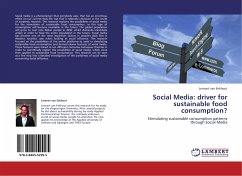
Professionalising Media: Who Needs a Degree to Get Low Pay?
Versandkostenfrei!
Versandfertig in 6-10 Tagen
34,99 €
inkl. MwSt.

PAYBACK Punkte
17 °P sammeln!
This book is the first of its kind in Uganda to discuss the issue of brown envelopes from the perspective of journalists salaries. The author argues that to get ethical behaviour in media, it is important to look beyond advocating for more university degrees because Uganda gets more than enough well-trained graduates each year. The attention instead should be put on the embarrassing salary that journalists get. This argument is supported by data showing that even reporters who have journalism degrees seek and receive brown envelopes. This is not because they do not understand media ethics. It ...
This book is the first of its kind in Uganda to discuss the issue of brown envelopes from the perspective of journalists salaries. The author argues that to get ethical behaviour in media, it is important to look beyond advocating for more university degrees because Uganda gets more than enough well-trained graduates each year. The attention instead should be put on the embarrassing salary that journalists get. This argument is supported by data showing that even reporters who have journalism degrees seek and receive brown envelopes. This is not because they do not understand media ethics. It is because they need to look after their families like any other person. The journalists who get as low as shs 1000 ($0.4) per story no longer abide by the newsroom rules of procedure. They resort to what this book refers to as Media Darwinism, a situation where only the physically strong journalist will survive. Approaching professionalism by setting degree standards, as the law dictates, is unreasonable, if the poor salaries are neglected.












